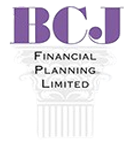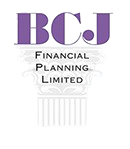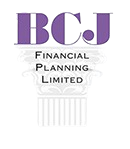Income Tax Allowances
PLEASE NOTE: the figures shown below apply to English taxpayers. Scottish taxpayers have different rates and bands. For more details, visit https://www.gov.scot/publications/scottish-income-tax-2025-2026-factsheet/pages/1/.
The income tax Personal Allowance for the year 2025/2026 is £12,570 (2024/2025 was also £12,570). If your total income is less than this during the tax year, you have no tax to pay.
Tax rates 2025-2026: Income Tax Personal Allowances
(1). This allowance is subject to the £100,000 income limit. The individual’s personal allowance is reduced where their income is above this limit. The allowance is reduced by £1 for every £2 above the limit.
(2). This age-related allowance is reduced by £1 for every £2 of income above this limit.
(3). This allowance is subject to the £37,000 income limit. The individual’s married couple’s allowance is reduced by £1 for every £2 above the limit. That reduction only applies after any reduction to their personal allowance (see note 1). The individual’s married couple’s allowance is never reduced below the minimum amount. Tax relief for the Married Couple's Allowance is given at the rate of 10%.
(4). This is also the maximum relief for maintenance payments where at least one of the parties is born before 6 April 1935.
(5). This transferable allowance is available to married couples and civil partners who are not in receipt of married couple’s allowance. A spouse or civil partner who is not liable to income tax; or not liable at the higher or additional rate, can transfer this amount of their personal allowance to their spouse or civil partner. The recipient must not be liable to income tax at the higher or additional rate. The recipient is eligible to a tax reduction of 20% of the transferred amount up to a maximum of £252.
(6). Individuals will not have to pay tax on the first £500 of dividend income they receive.
(7). Basic rate taxpayers will not have to pay tax on the first £1,000 of savings income they receive, and higher rate taxpayers will not have tax to pay on their first £500 of savings income.
Income tax bands and rates 2025-2026
(8). You may also get up to £5,000 of interest and not have to pay tax on it. This is your starting rate for savings. The more you earn from other income (for example your wages or pension), the less your starting rate for savings will be.
If your other income is £17,570 or more, you’re not eligible for the starting rate for savings if your other income is £17,570 or more.
If your other income is less than £17,570 your starting rate for savings is a maximum of £5,000. Every £1 of other income above your Personal Allowance reduces your starting rate for savings by £1.
The rates available for dividends are the 8.75 per cent ordinary rate, the 33.75 per cent dividend upper rate and the dividend additional rate of 39.35 per cent.
The self-employed can claim business expenses against their income. So, make sure you include all possible justifiable business expenses on your self-assessment form. This also applies to capital allowances for expenditure on plant and equipment, including computers and tools, for example, used for your business.
It is worth remembering you may be able to pay further contributions to your pension, which can utilise unused tax relief.
Since its introduction in 1990, Gift Aid allows taxpayers to receive tax relief on gifts made to qualifying charities.
One other point to remember is if one spouse is a taxpayer and the other is not or pays tax at a lower rate it is worth considering switching certain investments to take advantage of their unused tax allowances.
For further information about the 2025 Budget changes please click here.
Income Tax Allowances
PLEASE NOTE: the figures shown below apply to English taxpayers. Scottish taxpayers have different rates and bands. For more details, visit https://www.gov.scot/publications/scottish-income-tax-2025-2026-factsheet/pages/1/.
The income tax Personal Allowance for the year 2025/2026 is £12,570 (2024/2025 was also £12,570). If your total income is less than this during the tax year, you have no tax to pay.
Tax rates 2025-2026: Income Tax Personal Allowances
(1). This allowance is subject to the £100,000 income limit. The individual’s personal allowance is reduced where their income is above this limit. The allowance is reduced by £1 for every £2 above the limit.
(2). This age-related allowance is reduced by £1 for every £2 of income above this limit.
(3). This allowance is subject to the £37,000 income limit. The individual’s married couple’s allowance is reduced by £1 for every £2 above the limit. That reduction only applies after any reduction to their personal allowance (see note 1). The individual’s married couple’s allowance is never reduced below the minimum amount. Tax relief for the Married Couple's Allowance is given at the rate of 10%.
(4). This is also the maximum relief for maintenance payments where at least one of the parties is born before 6 April 1935.
(5). This transferable allowance is available to married couples and civil partners who are not in receipt of married couple’s allowance. A spouse or civil partner who is not liable to income tax; or not liable at the higher or additional rate, can transfer this amount of their personal allowance to their spouse or civil partner. The recipient must not be liable to income tax at the higher or additional rate. The recipient is eligible to a tax reduction of 20% of the transferred amount up to a maximum of £252.
(6). Individuals will not have to pay tax on the first £500 of dividend income they receive.
(7). Basic rate taxpayers will not have to pay tax on the first £1,000 of savings income they receive, and higher rate taxpayers will not have tax to pay on their first £500 of savings income.
Income tax bands and rates 2025-2026
(8). You may also get up to £5,000 of interest and not have to pay tax on it. This is your starting rate for savings. The more you earn from other income (for example your wages or pension), the less your starting rate for savings will be.
If your other income is £17,570 or more, you’re not eligible for the starting rate for savings if your other income is £17,570 or more.
If your other income is less than £17,570 your starting rate for savings is a maximum of £5,000. Every £1 of other income above your Personal Allowance reduces your starting rate for savings by £1.
The rates available for dividends are the 8.75 per cent ordinary rate, the 33.75 per cent dividend upper rate and the dividend additional rate of 39.35 per cent.
The self-employed can claim business expenses against their income. So, make sure you include all possible justifiable business expenses on your self-assessment form. This also applies to capital allowances for expenditure on plant and equipment, including computers and tools, for example, used for your business.
It is worth remembering you may be able to pay further contributions to your pension, which can utilise unused tax relief.
Since its introduction in 1990, Gift Aid allows taxpayers to receive tax relief on gifts made to qualifying charities.
One other point to remember is if one spouse is a taxpayer and the other is not or pays tax at a lower rate it is worth considering switching certain investments to take advantage of their unused tax allowances.
For further information about the 2025 Budget changes please click here.
Read less







